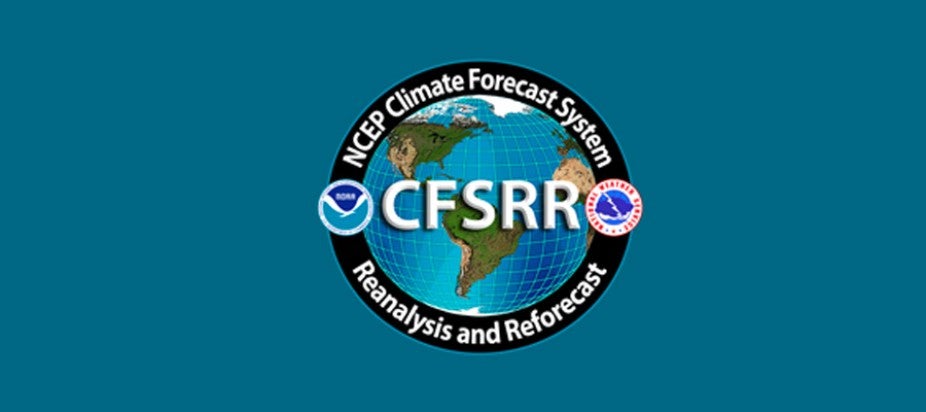CFSv2 Evaluation Workshop

6:00 – 6:00 pm MDT
Background:
In March 2011, The National Centers for Environmental Prediction (NCEP) implemented the Climate Forecast System version 2 (CFSv2) in seasonal forecasting operations. CFS is a coupled global climate model used for operational intraseasonal-to-interannual (ISI) prediction at NCEP. The current version of CFS includes the latest developments in the global atmospheric model (GFS, used for numerical weather forecast), coupling with a new version of the global ocean model (MOM4), a sea ice model, and an improved land surface model (Noah).
CFSv2 Data Access:
Data for the CFSv2 Reanalysis (1979-2010), seasonal Reforecasts (1982-2010), and 45-day Reforecasts (1999-2010) (CFSRR) are being made available by the National Climatic Data Center (NCDC) and are partially available at NCEP:
The NCEP decadal runs of CFSv2 are now available at PCMDI:
COLA has also agreed to share its CFSv2 decadal runs with the community available at the following sites. (Please acknowledge COLA in any publications or web pages that make use of these data):
- ftp://iges.org/slimline/nemo/ or GDS (OPeNDAP)
- http://monsoondata.org:9090/dods/slimline/nemo/flxf
- http://monsoondata.org:9090/dods/slimline/nemo/ocnh
- http://monsoondata.org:9090/dods/slimline/nemo/pgbf
Meeting Objectives:
The purpose of this workshop is to evaluate CFSv2 in terms of its utility for climate modeling research and as a climate forecasting tool. The objectives of this workshop are to bring NCEP and the broader climate community together to:
- document progress in model performance from CFSv1 to CFSv2, including the impacts of reanalysis, initializing atmosphere/ocean/land, and the change in the model itself;
- identify key model biases and deficiencies in the CFSv2;
- help identify most promising research directions for the development of CFSv3, for example, to design experiments to understand how to incrementally improve upon CFSv2, and to test coupling of the latest GFS with state-of-the-art model components.
The two-day meeting, jointly sponsored by NCEP and the Climate Program Office, will consist of oral (and possibly poster) presentations and panel discussions. Participations from other NOAA climate modeling groups (e.g., GFDL, ESRL) are strongly encouraged. The outcomes of the meeting will help define research priorities for NOAA-wide collaborations on climate model development including preparation for CFSv3.